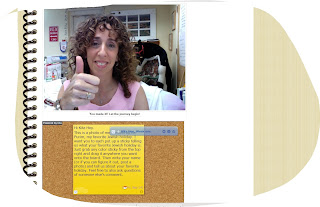Seventy
years ago the prevailing wisdom held that Jewish communal life was dead in
Eastern and Central Europe. The Jewish communities of the region had been
decimated and most of the survivors chose to emigrate and leave their memories
behind.
However,
the Jewish communities didn't entirely disappear. As the years progressed, some
Jews emerged from their quiet lives while others
joined the population. Over the last 25 years the Lauder Foundation has been at
the forefront of assisting the members of these Jewish communities,
particularly in the realm of education.
Since
1988 the Lauder Foundation has established thirteen Jewish schools throughout
Southern, Eastern and Central Europe -- in Germany, Greece, Romania, Hungary,
Russia, Poland, Czech Republic, the Ukraine, Bulgaria, Croatia and Austria.
These schools include some partnerships with ORT and Chabad while others remain
independent. Lauder schools involve both elementary and high school education
and aim to help students connect, learn and develop their Jewish identities.
eLearning
is beginning to play an increasingly important role in the Lauder schools. The Lauder
Foundation recently turned to JETS Israel
for an online course that will provide Lauder teachers with tools and
techniques to include online learning in their curriculum.
The
teachers from the Lauder schools in Germany see the program as providing them with
important tools that will allow them to enhance their classes with elearning. One teacher
described the confidence that she gained from the course. "I learned a lot
about distance learning technology and received so much guidance that I'm ready
to launch the program in my own classes. The course provided me with enough tools
to understand the logic and pedagogy of this teaching method."
During the
course the students explored how to use an online blackboard -- elluminate --
and reviewed a wide range of online tools including using google docs in the
classroom, scribblars, linoboards, vocaroos, vokis, social posterboards and
Learning Management Systems such as Wikis and Haikus. Participants expressed
their feelings, describing how the course provided them with concrete ideas
that enable them to teach multiple age groups at once and ensure that each
student receives the information and assignments at his or her own grade level.
Participants presented a sample online class to other course participants as part of the process of learning how to manipulate the online blackboard and introduce elearning tools into their curriculum. In summarizing
his experiences, a Berlin-based Lauder teacher wrote "Online teaching can empower the student
and make him responsible for his own learning. The tools that I
learned will allow me to facilitate this type of education in my own classroom."
The staff of Lauder's
Russian schools will begin their own No Teacher Left Behind
course in basic online learning concepts in the coming weeks. As one of the
participants from the Warsaw Lauder School noted after her course, "You don't
have to be in the classroom to teach students. There is a wide variety of tools
which make on-line classes effective and interesting...ice-breakers help me to
get to know my kids better and the vokis enhance lessons in Hebrew language....it's
a fun and creative way to teach."



No comments:
Post a Comment